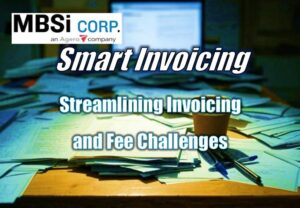
GUEST EDITORIAL
I recently was questioned as to my opinion regarding a current industry contract which instructed the recovery agent to leave all personal property in a recovered vehicle when releasing it to a transporter,
Let me clearly state: I am not an attorney, and I am not giving legal advice related to this issue…but rather my opinion based on 50 plus years of background in the asset recovery industry, education, experience, training, and observations.
I found, after researching the issue of “NON-SECURED PERSONAL PROPERTY IN A REPOSSESSED VEHICLE” in the latest National Consumer Law Center publication on Repossessions that in most cases which have been filed and litigated the lender (secured party) is ultimately the one who is responsible for non-secured personal property in a repossessed vehicle.
The asset recovery specialist works for the secured party either as an independent contractor or as an agent of their entity, therefore they are bound by an oral or written contractual arrangement to follow their instructions if they wish to perpetuate that business arrangement.
However… this request, instruction, demand on the part of the lender (secured party) opens up a Pandora’s Box of potential issues and problems which may ultimately place the recovery agent and the lender or whoever the assigning client might be in a court of law.
Per instructions the recovery agent does not do a thorough inventory and release the vehicle to the transport company with the personal property inside…the chain of custody and control is broken, the consumer claims all of their property was not returned and there are missing items… where did those Rolex watches, credit cards, vital medicines and envelopes full of cash go?
The vehicle was picked up by a recovery agency… did they remove personal property and convert it to their use?
The recovery agent released the vehicle to a transport company… did the transport driver remove personal property?
The transport driver released the vehicle to an auction… did an auction employee remove the personal property?
The lender (secured party) was never in control of the vehicle or the personal property, yet they are the ones who are ultimately responsible for the safekeeping of the property. Who do they look to if there is a claim of missing property?
I think we all know the answer to that question.
And now…
There is the HIPAA Claim, “any medical related information” which was in the vehicle, prescription pill containers, medical bills, any medical related documents if not handled properly and disposed of or stored with dictated protection will cause rise to a claim under the HIPAA statutes which carry hefty fines for a violation.
There is the GLBA Claim, any non-public personal information such as a checkbook, bank statements, dunning notices, identification documents not properly protected and stored and disposed of in a proper manner will cause rise to a GLBA violation claim.
There is the FDCPA claim, any information indicating a debt or any type of financial obligation, again must be stored properly and if not returned to the consumer, disposed of in a proper manner.
The next time you have the opportunity to talk with a transport driver or auction employee ask them what they know about the HIPAA, GLBA, and FDCPA Rules and Regulations. Prepare yourself for a blank stare and a “HUH”. Remember, they do not have to know, it’s not in their job description.
It appears to me that it would be a much more sensible concept to avoid all of these potential issues which may lead to costly litigation and adverse publicity for the client to allow a professional and trained asset recovery agent, who is knowledgeable of all the requirements set forth in state and federal statutes related to the proper handling of non-secured personal property, to maintain the control of custody, inventory and properly secure and store the personal property in recovered vehicles.
I wonder why any client (secured party) would make this type of decision. Can they not trust some of the agents they are hiring, have there been claims of theft of personal property, do they not trust their agents to follow statute guidelines and dispose of protected data properly. I question the root cause of this contractual request.
Personally, if I received this contractual instruction from a client my choices would be very simple, either provide me a “Personal Property Specific Hold Harmless”, or find an amateur to do your recovery work.
I would remind the lender of a quotation from that famous oilfield firefighter, Red Adair,
” If you think it is expensive to hire a professional to do the job, wait til you hire an amateur.”

Ron L. Brown, Facilitator EAGLE GROUP XX/USA











Facebook Comments